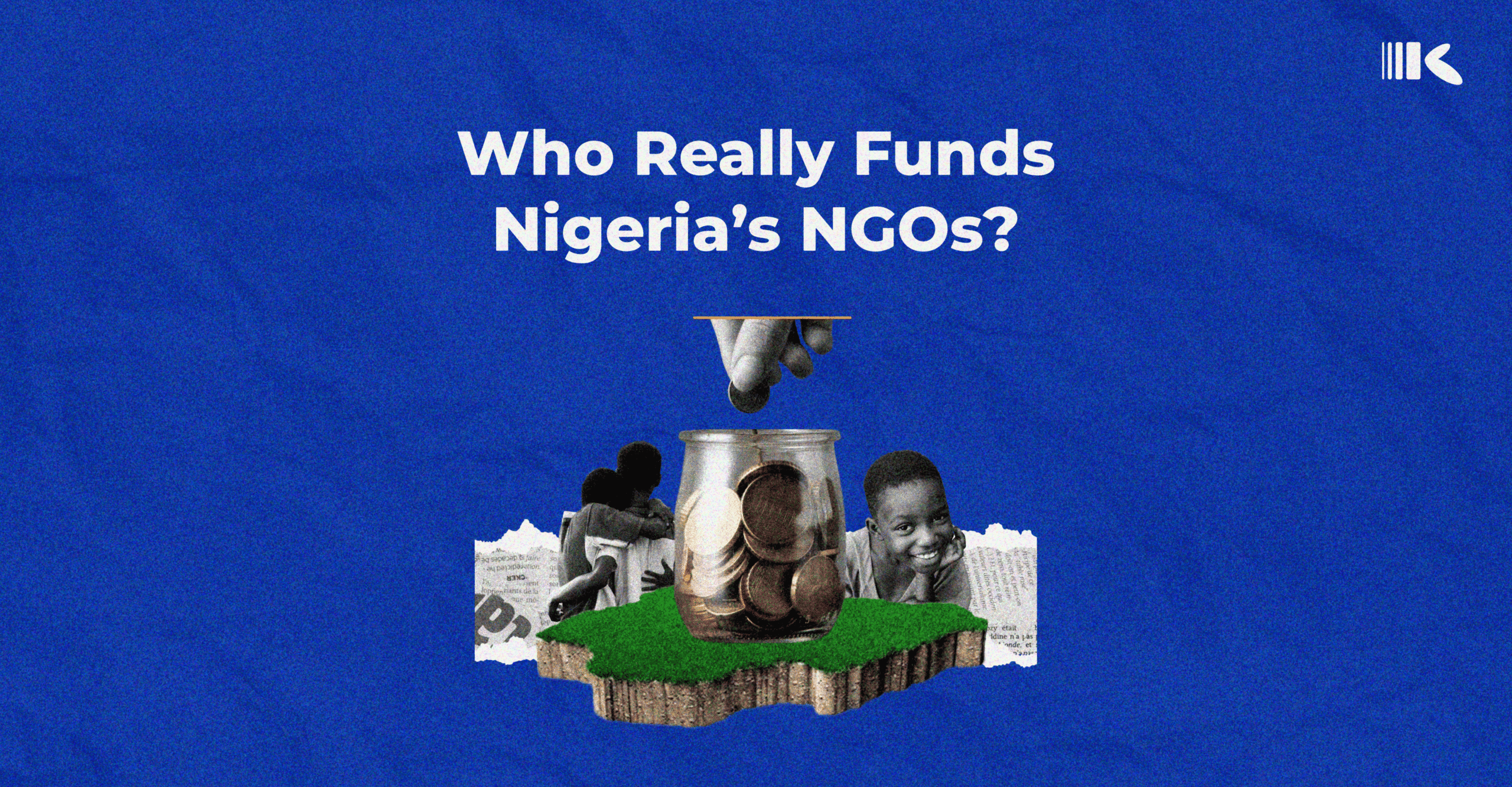Take a wild guess, but first let give you a hint: It’s not the Government
When conversations about Non-Governmental Organizations (NGOs) in Nigeria come up, the Nigerian government is quick to highlight and ‘glorify’ how important these organizations are. You’ll hear lines like: “NGOs are vital agents of change, serving as a bridge between government and the people, tackling poverty, improving healthcare, advancing education, protecting the environment, and holding we the leaders accountable.”
Honestly, they are not wrong and Nigerian NGOs are at the forefront of filling the gaps that the government leaves behind.
Do not be deceived though, there’s a plot twist. When it comes to financially supporting their activities, trust the government to fade into the background. They regulate NGOs, they monitor NGOs, sometimes they even frustrate the growth of NGOs with endless bureaucracy, but when it comes to supporting them financially. Let’s just say, Nigeria no dey carry last when it comes to “talk without money.”
So, who really funds Nigerian NGOs? Let’s break it down.
Firstly, where do NGOs generally get their money?
Globally, Nonprofits raise funds from a wide mix of sources. Some of these come from grants from governments, foundations, or corporations. Other Nonprofits rely on contracts, individual donations, or even the personal wallets of their founders. NGOs also turn to fundraising drives, crowdfunding platforms, and investments to sustain their projects.
In Nigeria, external sources dominate the NGO funding sector. International organizations and foreign governments provide the bulk of resources that keep NGOs alive. Internal sources, such as membership dues, small revenues from products or unorthodox services they provide, do a thing or two, but they are often not enough to cover operational costs, much less fund large scale goals and projects. This pretty much means that Nigerian NGOs lean heavily on external sources to drive their work. In short, Nigerian NGOs are global citizens when it comes to funding, but are almost orphans at home.
The Reality of Nigerian Government Support
The pressing question then is: Does the Nigerian government fund NGOs? Technically, yes. But the support is so minute it hardly moves the needle and that is if the money even gets to them at all. This is unlike the United States, where government funding is a lifeline for several Nonprofits; the Nigerian government’s financial grants are mostly unclear and are usually tied to government driven social investment schemes.
However, let’s do some clarifications: Social investment schemes are not the same thing as grants. Grants are funds that NGOs apply for and use to run their own independent projects. Social investment schemes like N-Power or TraderMoni work differently; NGOs are only brought in to deliver government projects. The agenda, the funds, and the control stay tightly in the hands of the government.
Instead of empowering NGOs to be independent problem solvers, our government through these schemes reduces them to contractors. My dear brothers and sisters of the Federation, social investment schemes definitely do not equate “support”. It is at best a partnership; at worst, tokenism. Nigeria could establish more effective, transparent grant systems for NGOs by making it a priority.
Nigeria vs the US: Worlds Apart
The story in the US is different. The US government is actually one of the biggest funders of nonprofits, with more than 900 funding programs that span objectives relating to healthcare, arts, education, and culture. National Agencies like the National Institutes of Health and the National Endowment for the Arts in the US pump billions of dollars directly into Nonprofit projects annually.
According to data from Candid, at least 30% of US nonprofits receive government grants in a given year, adding up to about $303 billion annually. For many NGOs, that money makes up more than half of their yearly budget.
That level of support is worlds apart from Nigeria, where open calls for grants are rare, transparent platforms do not exist, and government funding is invisible.
So, Who Really Funds Nigerian NGOs?
Let’s be honest: most Nigerian NGOs survive not on government support, but on foreign funding and a handful of local partners. Major foundations like Ford, MacArthur, and Gates are a steady lifeline, alongside UN agencies, the EU, corporate CSR funds, and individual donations. The reality is that Nigeria’s NGO sector doesn’t run on government fuel but on global goodwill.
Government Money: A Blessing or Wahala for NGOs?
Government funding may appear to be the missing piece for Nigeria’s NGOs, but this solution is deceptively complex. More money sounds like more impact, right? Here’s the catch:
- Overdependence; If NGOs rely too much on government money, one budget cut or policy change could gravely affect their funding system.
- Too much bureaucracy; Government funding often comes with heavy paperwork, endless reporting, and the red tape that shifts focus from people to files.
- Mission drift; NGOs may start adjusting their goals to match government interests, instead of the real community needs.
- Loss of independence; How do you hold the same government accountable if they’re the ones signing your cheques?
Therefore, while government money is not bad in itself, it can easily switch from being a blessing to more problems. The key is balance. NGOs must keep their independence and community focus, no matter where the money comes from.
The Way Forward
For Nigerian NGOs to thrive, it is pretty important that the Nigerian government does more than regulation and speeches. You will agree with me that they need to create an open and transparent grant system that any qualified NGO can access. At the same time, NGOs themselves must look inward, build stronger local donor connections, embrace crowdfunding, and draw more support from Nigerian businesses and philanthropists
Until then, the truth is plain and simple: Nigerian NGOs survive not because of government support, but in spite of it. The bigger question is, how long will we keep depending on outsiders to fund solutions to our own problems?
